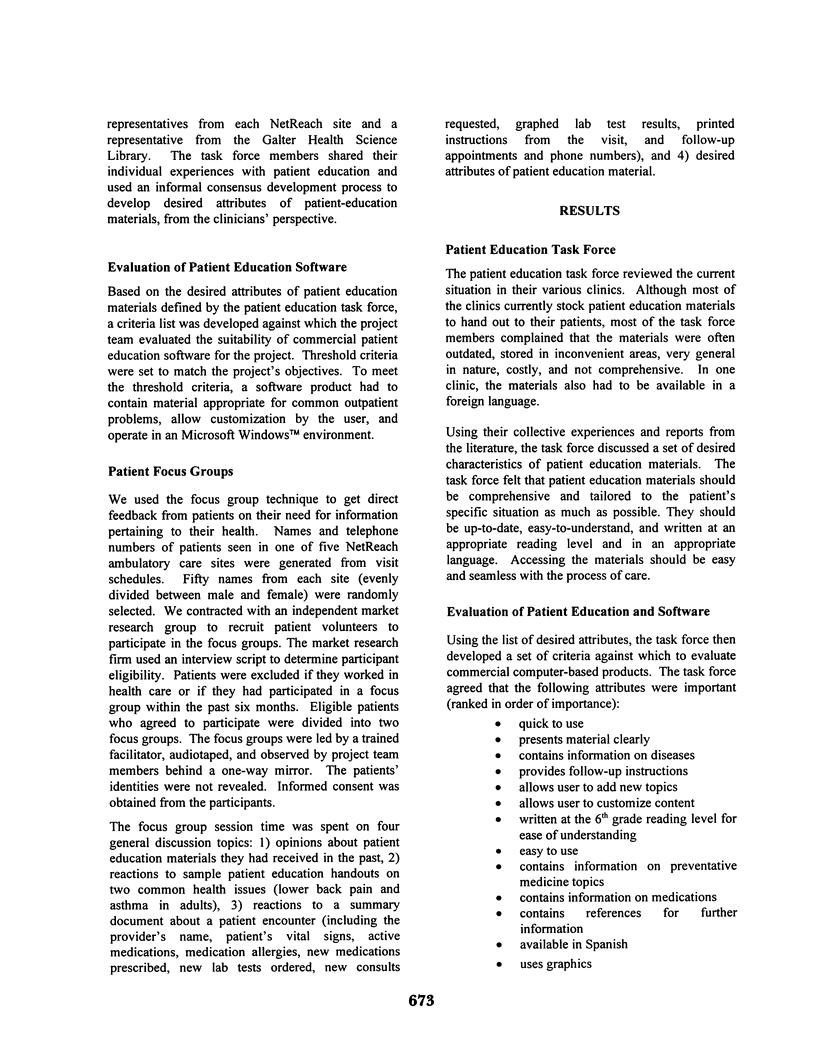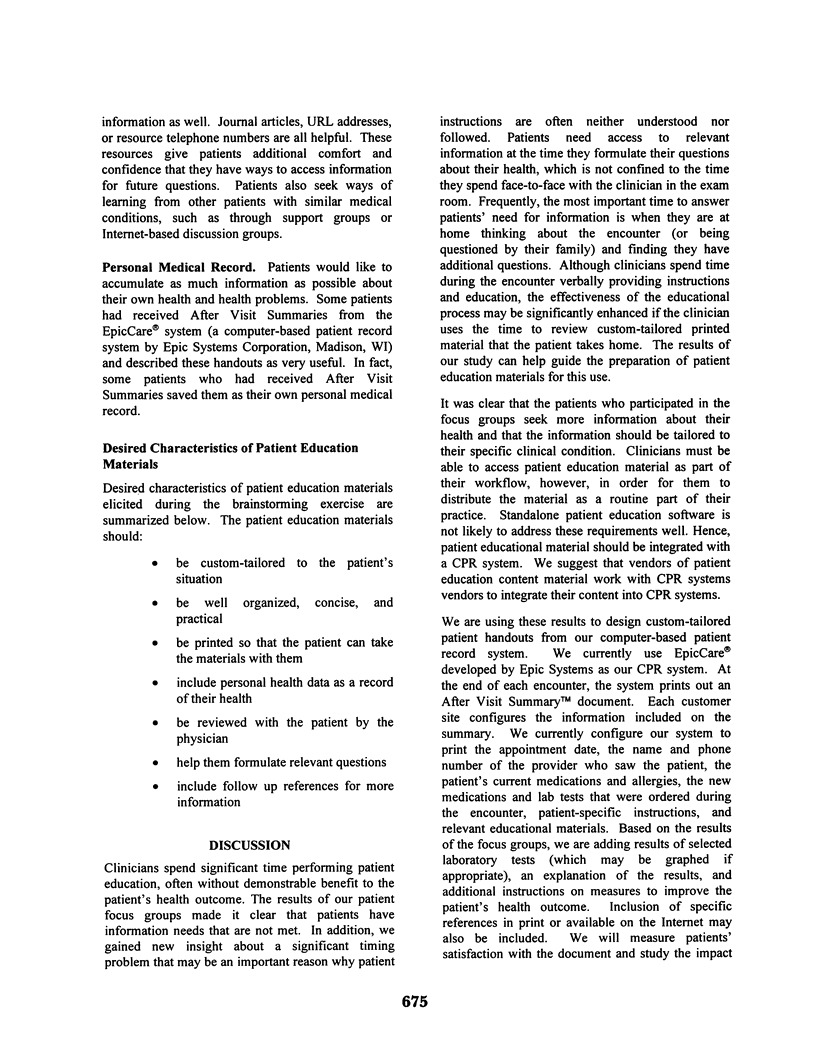Abstract
Changing roles in health care call for patients to share increased responsibility for managing their health. Patients may need additional health-related information to participate more fully in health care decisions. We examined patients' information needs from the perspective of clinicians, educational software vendors, and patients. The most instructive information came directly from patients in focus groups. The participants in our focus groups clearly sought more information about their health than they had received during visits with their physicians. Patients' needs were specific to their individual clinical situation, and timing was critical. Although physicians spend a significant amount of time on patient education during an encounter, patients typically formulate their questions after the encounter. We used the results of focus groups to develop desired characteristics of patient education material that addresses patients' information needs. Providers who understand and address these needs will be in a better position to effectively engage patients' active participation in their health care.
Full text
PDF




Selected References
These references are in PubMed. This may not be the complete list of references from this article.
- Beisecker A. E., Beisecker T. D. Patient information-seeking behaviors when communicating with doctors. Med Care. 1990 Jan;28(1):19–28. doi: 10.1097/00005650-199001000-00004. [DOI] [PubMed] [Google Scholar]
- Daltroy L. H. Doctor-patient communication in rheumatological disorders. Baillieres Clin Rheumatol. 1993 Jun;7(2):221–239. doi: 10.1016/s0950-3579(05)80087-1. [DOI] [PubMed] [Google Scholar]
- Francis V., Korsch B. M., Morris M. J. Gaps in doctor-patient communication. Patients' response to medical advice. N Engl J Med. 1969 Mar 6;280(10):535–540. doi: 10.1056/NEJM196903062801004. [DOI] [PubMed] [Google Scholar]
- Gillispie M. A., Ellis L. B. Computer-based patient education revisited. J Med Syst. 1993 Aug;17(3-4):119–125. doi: 10.1007/BF00996935. [DOI] [PubMed] [Google Scholar]
- Scheitel S. M., Boland B. J., Wollan P. C., Silverstein M. D. Patient-physician agreement about medical diagnoses and cardiovascular risk factors in the ambulatory general medical examination. Mayo Clin Proc. 1996 Dec;71(12):1131–1137. doi: 10.4065/71.12.1131. [DOI] [PubMed] [Google Scholar]
- Seeman M., Seeman T. E. Health behavior and personal autonomy: a longitudinal study of the sense of control in illness. J Health Soc Behav. 1983 Jun;24(2):144–160. [PubMed] [Google Scholar]
- Sex Information and Education Council of the U.S. SIECUS SIECUS fact sheet: comprehensive sexuality education. The truth about latex condoms. SIECUS Rep. 1993 Oct-Nov;21:17–19. [PubMed] [Google Scholar]
- Tang P. C., Jaworski M. A., Fellencer C. A., Kreider N., LaRosa M. P., Marquardt W. C. Clinician information activities in diverse ambulatory care practices. Proc AMIA Annu Fall Symp. 1996:12–16. [PMC free article] [PubMed] [Google Scholar]
- Waitzkin H. Information giving in medical care. J Health Soc Behav. 1985 Jun;26(2):81–101. [PubMed] [Google Scholar]



